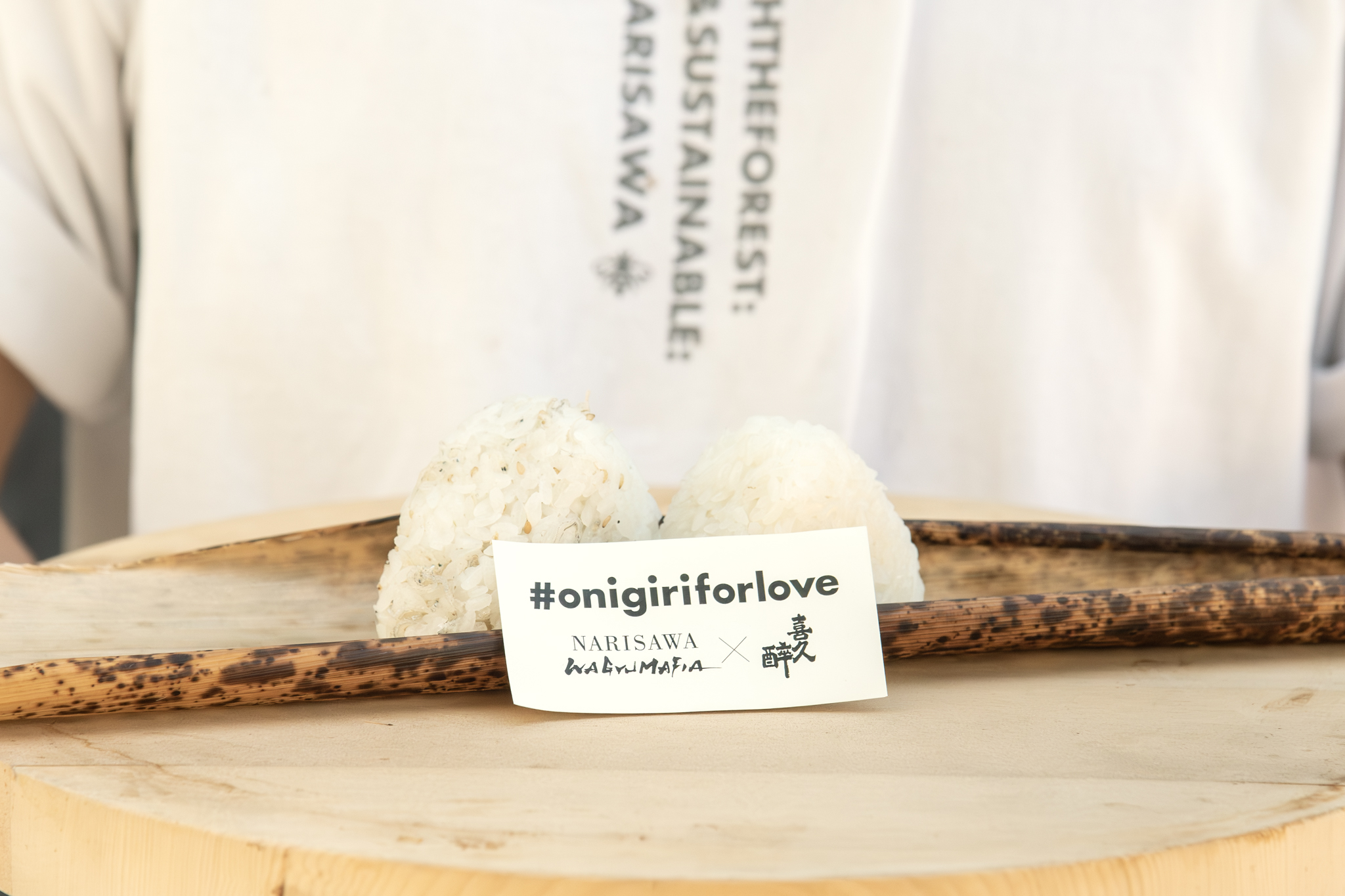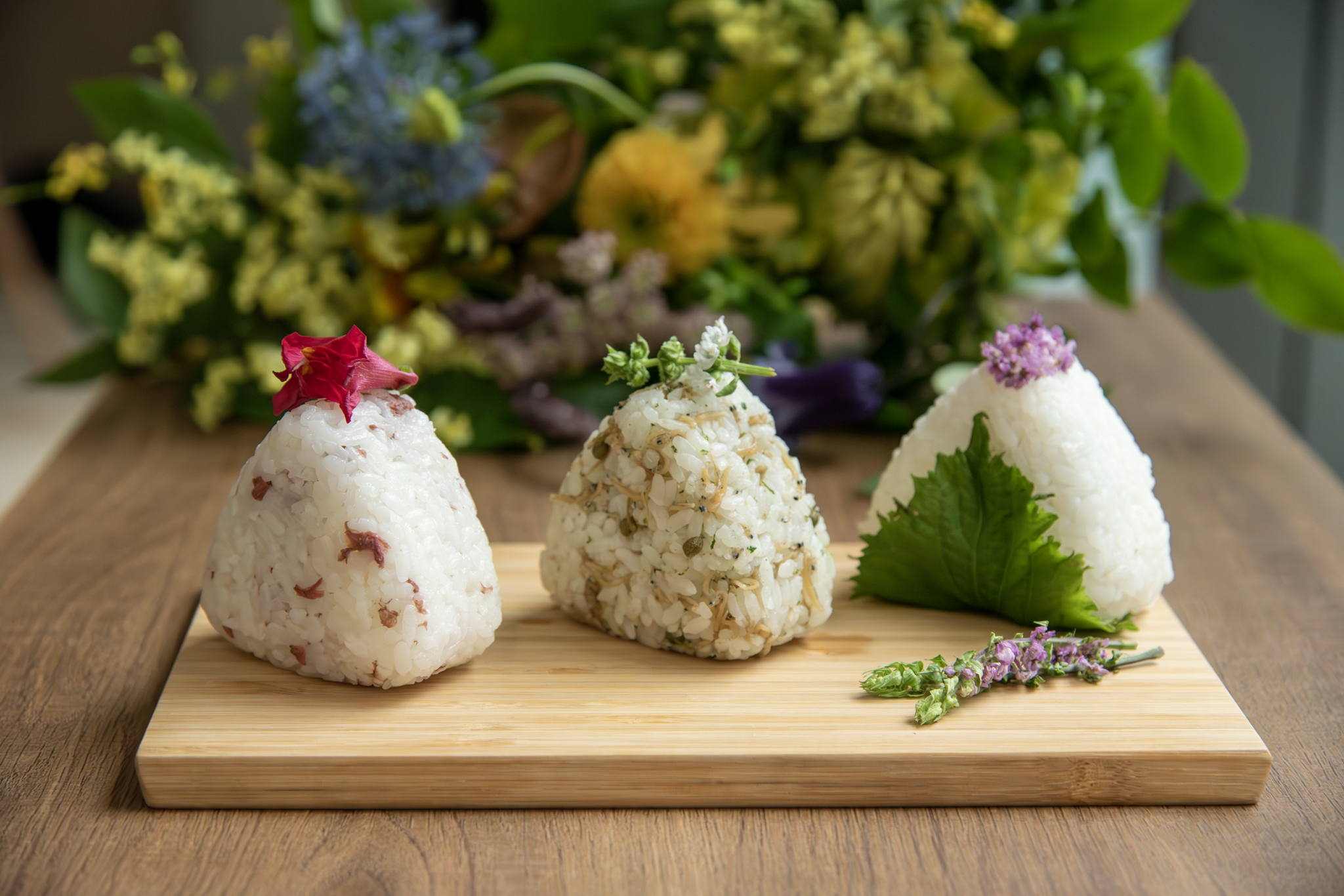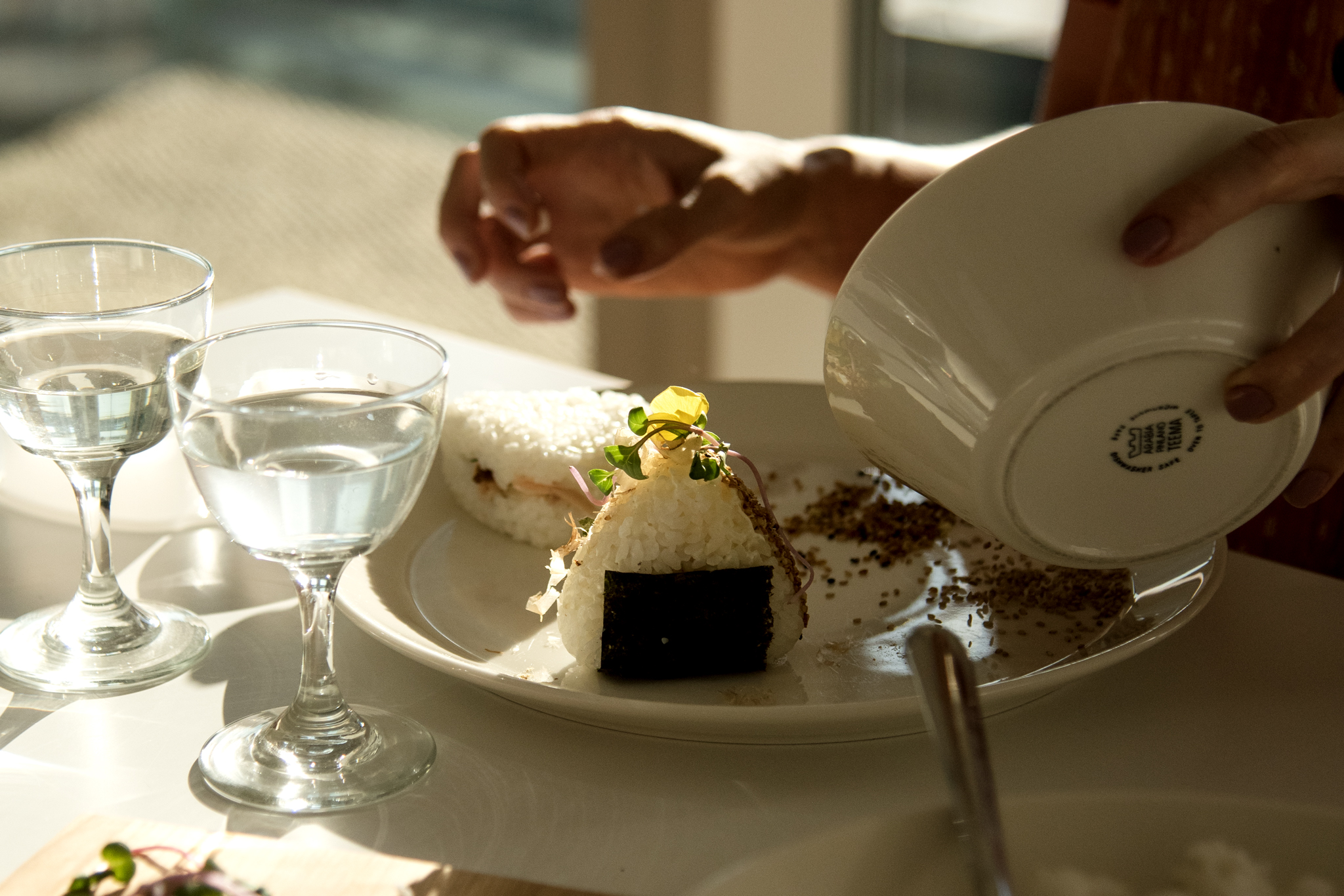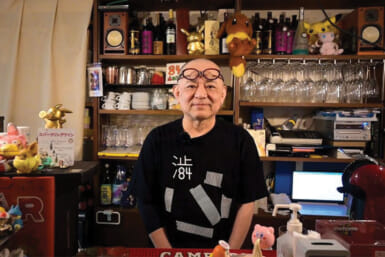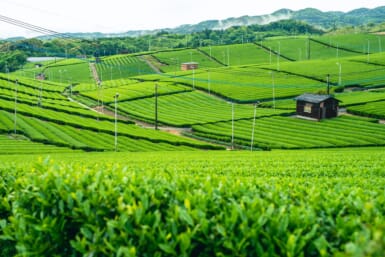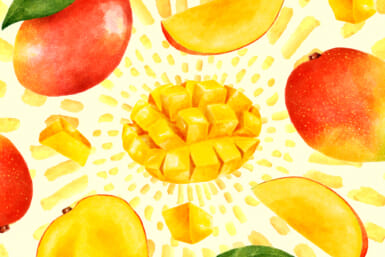Onigiri is a love language carried to school and work in a bento box. Available everywhere, the balls of rice exude beauty in their simplicity. Modest though they may be, their capacity for comfort extends beyond the act of eating. Just making onigiri, molding the warm rice with one’s hands, is utterly soothing.
The power of Japan’s beloved comfort food is such that even renowned chefs Yoshihiro Narisawa and Hisato Hamada are passionate about the dish. Prompted by the pandemic that in 2020 left their industry shaken to its core, Narisawa and Hamada decided to take that passion and use it to do some good.
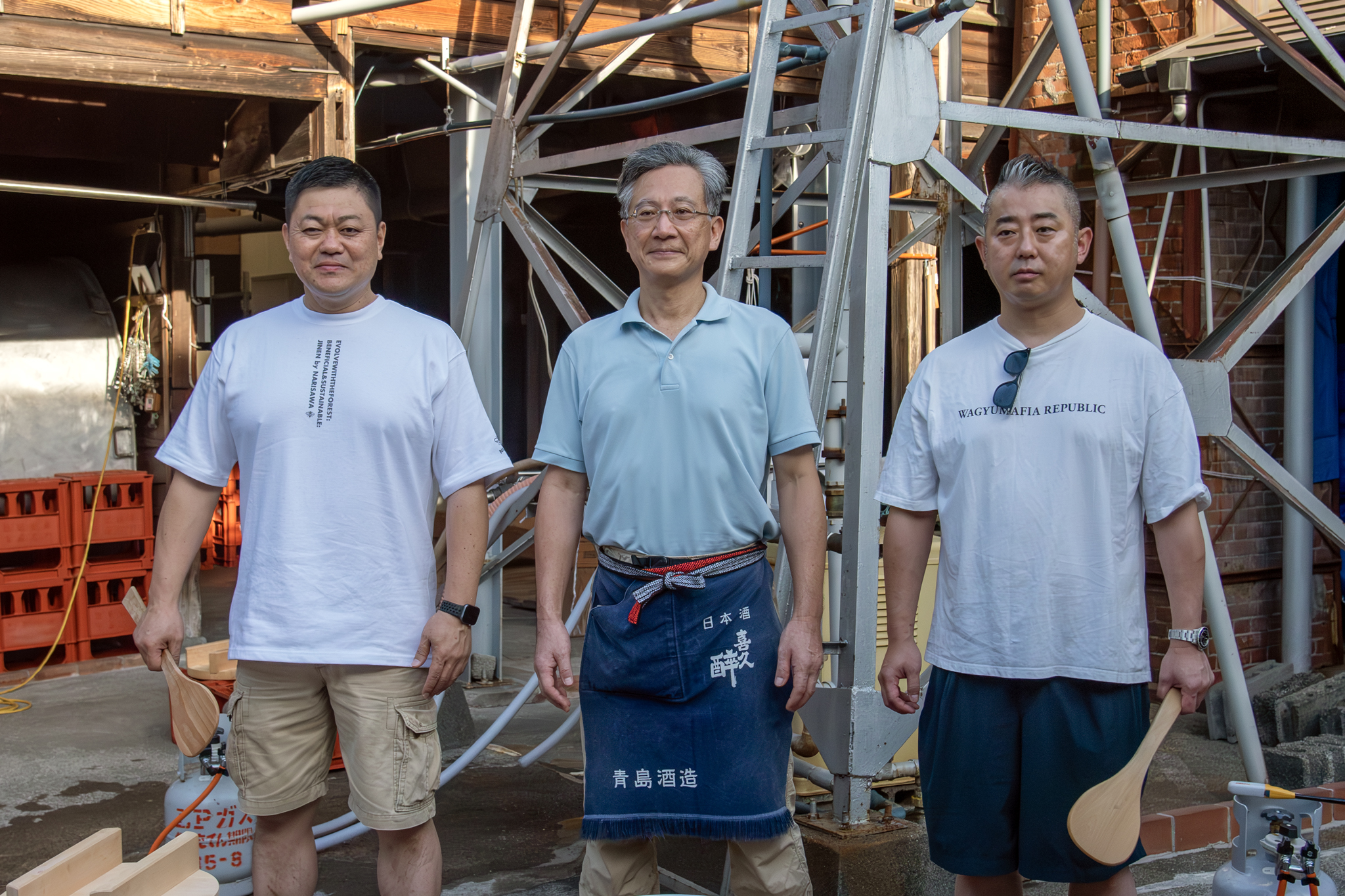
Joining Forces
Narisawa, the chef and owner of his eponymous two-Michelin-star Tokyo restaurant, is considered an innovator in Japanese gastronomy by his peers. Hamada, meanwhile, deals in wagyu beef as part of his Wagyumafia group of restaurants that showcases the best wagyu and high-end Japanese ingredients at locations in Tokyo and around the world.
In February 2021, they started Onigiri for Love, a project that sees the chefs and their teams travel to a sake brewery, make onigiri from local ingredients and then donate them to a local hospital. The first Onigiri for Love gathering was at Masuda Shuzo in Higashi-Iwase, Toyama.
“We wanted to do our part to try and uplift the industry and involve local producers and the community,” Narisawa tells TW. “We also wanted to bring attention to the healthcare industry, which was working nonstop to fight the pandemic.”
Hamada adds that the chefs felt it was important to raise their voice, regardless of the manner and no matter how small the voice might be. They also wanted to help in the revitalization of sake breweries and to support rice farmers.
“Sake and onigiri share the same main ingredients — water and rice — and the quality of these ingredients is equally important for both,” Narisawa explains.
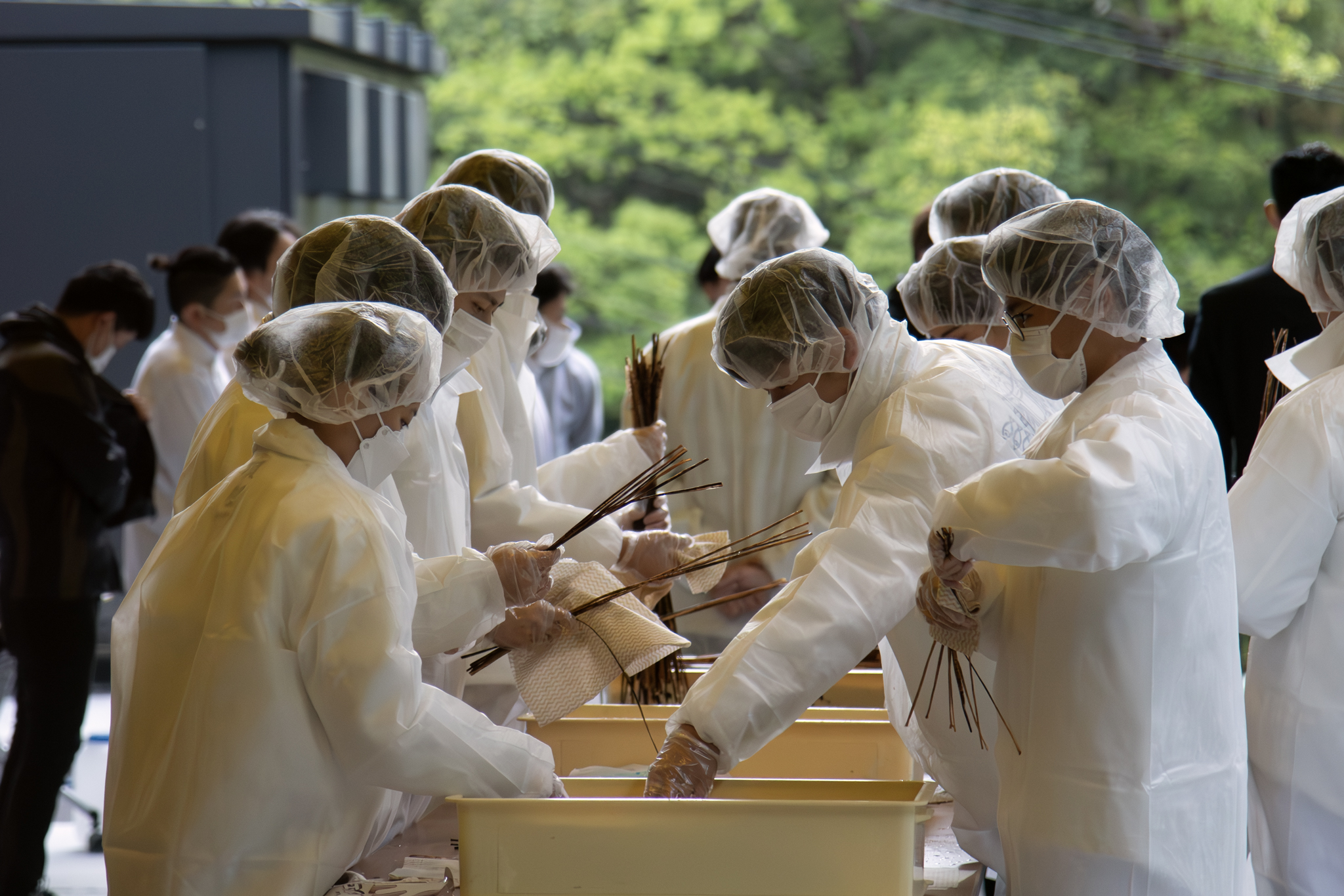
Creating Community
The Onigiri for Love project has been going on for more than two years now and has 23 events under its belt. Along the way, it has grown and taken on new forms. The core, however, remains the same: It’s all about community and giving back.
From the beginning, the chefs have understood the importance of involving locals. Teams travel to the location the day before an event to check ingredients and wash and prepare rice for the next day. In the evening, everyone gathers to eat, laugh and enjoy the moment — a rarity during the pandemic.
The second day, everyone cooks the rice together, then molds the onigiri. A feeling of equality prevails as the top chefs work alongside local grandmothers with more extensive onigiri experience and first-timers trying to learn as they go.
The hot rice warming the hands of all those busy at work is the perfect metaphor for the warmth of community and doing good. Even the word “onigiri” suggests a sense of fellowship and belonging: “Nigiri” is the base word for the phrase “te wo nigiru,” which means to hold hands or join forces, and the teamwork of those involved demonstrates the closeness and the strength of the shared experience.
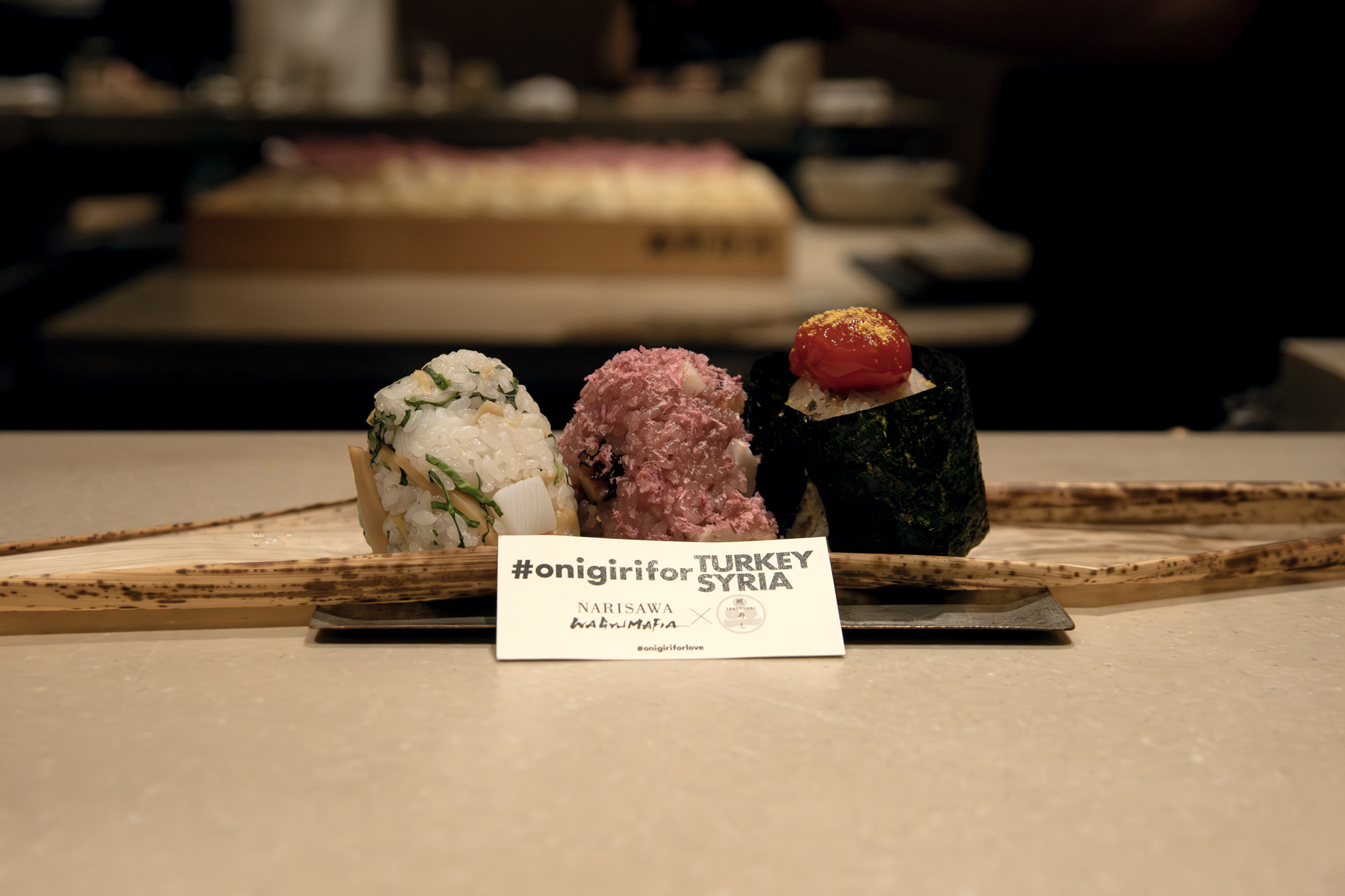
Onigiri Gone Global
In the beginning, I followed the project online from home, creating my own onigiri using ingredients from the areas where Onigiri for Love touched down. As the project continued and the chefs took their initiative to ever more locations, I kept up my own practice of using regional fillings and sampling sake from the breweries they visited — sakura onigiri for Fukushima and the anniversary of the 2011 Tohoku earthquake and tsunami, sansai wild mountain plants for the start of foraging season and edible flowers for the beginning of summer.
I felt so inspired by the project that I took it with me to Finland, bringing along sake from the breweries involved, creating seasonal Finnish ingredients for the fillings and gathering a group of friends with whom to share the joy of onigiri. The comfort of onigiri is at its best in the shared experience, and it travels well across cultures.
After war broke out in Ukraine, the project morphed into Onigiri for Ukraine to bring attention to the conflict and gather funds for UNICEF. To this end, a special Onigiri for Love event, the biggest one to date and the first I was able to experience in person, was organized at Narisawa in Tokyo in April 2022. The event saw some 50 people gather to roll 160 kilograms of rice into about 3,000 onigiri. These efforts, combined with the help of Japan-based Ukrainian Youtube stars the Sawayan Brothers, resulted in a donation of more than ¥1.5 million to UNICEF.
The latest iteration of the ever-evolving project came together quickly in response to the devastating Turkey-Syria earthquake of February 6, 2023. The chefs, along with friends and longtime Onigiri for Love participants Takayoshi Watanabe of Kyushu’s Teruzushi sushi restaurant and Hide Izaki, a coffee master, held an Onigiri for Turkey and Syria charity breakfast in Tokyo with all proceeds going to UNICEF for the affected areas.
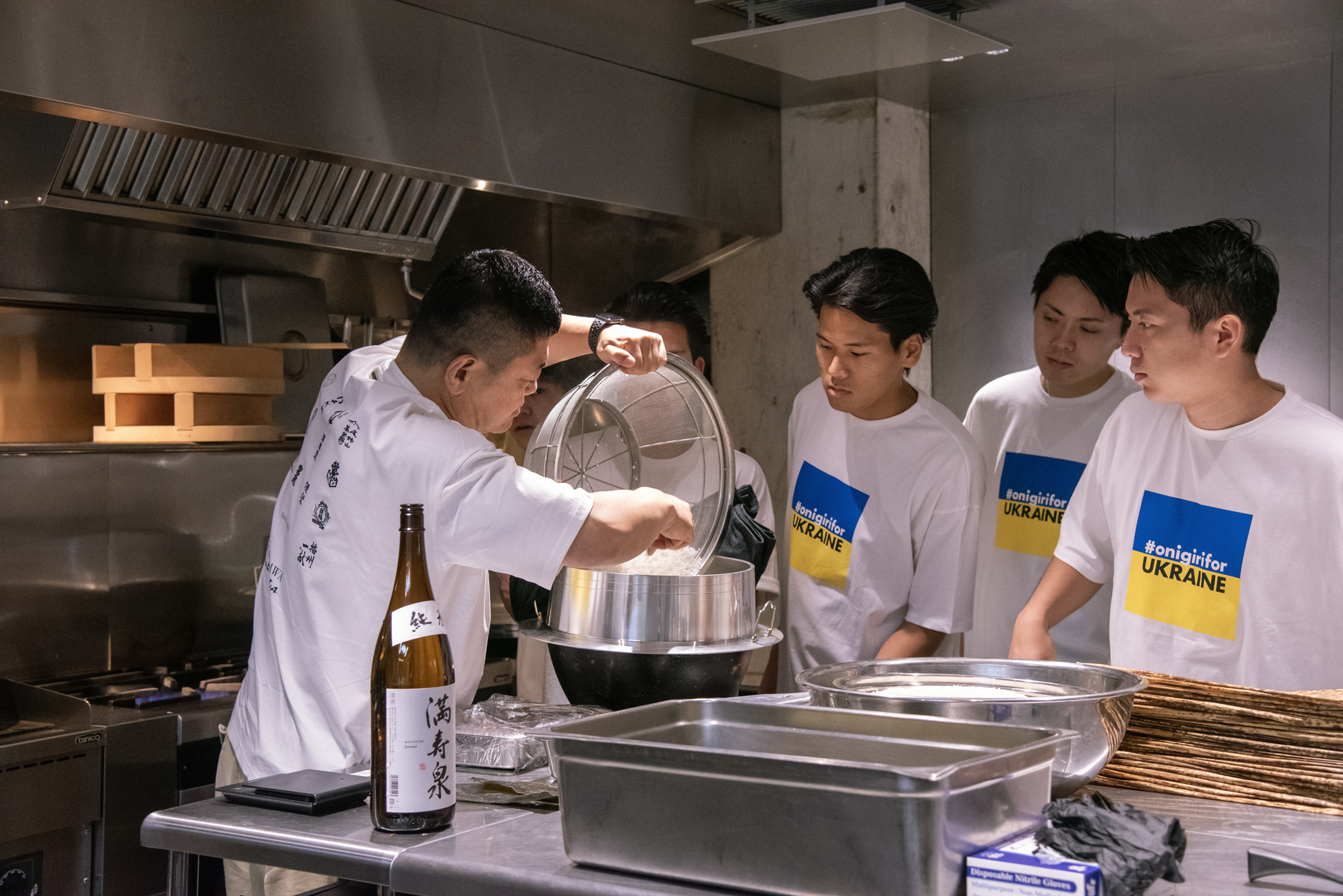
Keep On Cooking
Since Japan dropped its pandemic-related restrictions and reopened its borders, life and work for the two chefs have become busy again. But they both feel strongly about the Onigiri for Love project and want to continue it in some form.
“We want to keep supporting good farmers and producers and use our platform to uplift them,” Hamada says. “Maybe we’ll also invite the international community to share the onigiri love with us. We might be out of the pandemic, but the need for comfort and community has never been stronger.”
Hamada and Narisawa share that the Onigiri for Love project allowed them the chance to visit a number of amazing destinations, which in turn introduced them to new ingredients and wonderful people. Along the way, they discovered the true splendor of Japan.
“We found lifelong friends in each other,” they say. “This humble little project has grown into a beautiful big family.”

